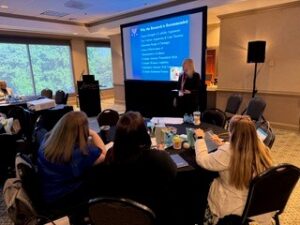I’m Mike Tanner. I’m a lawyer here at Tanner Bishop. We do litigation. Dispute resolution probably more correctly states what we do and that means for businesses, large and small, we help resolve disputes everywhere from the pre-lawsuit stage through lawsuits, if necessary, through trials and up through appeals and we’ve done, and do now, all stages of that. We try cases to courts. We try cases to juries. When we try cases to a jury we want to know as best we can what our jury is likely to think of our case. To do that we’ve used Magnus on several occasions. I would say that for every case of any significance, we would do a mock jury and we’ve done it successfully with Magnus, and so we would certainly continue to use them.
In our view, a mock jury is essential to understand the strengths and weaknesses of your case. I don’t care how good a lawyer you are, every one of us get a little bit of tunnel vision in our cases as we prepare them. We think we know what a jury of laypeople will be persuaded by, but often it’s not anything like what a jury of laypeople really will find persuasive. So, that’s the value of either a focus group, or better yet, a mock jury such as Magnus will do. Because they’ll get real folks off the street, give us an opportunity to interact with them by presenting our case on a summary basis, videotaping them, and then listening to what resonates with them and what doesn’t. It’s often the very surprising, the things that we think are important just don’t seem that important to the layperson. Vice versa, we’re often very surprised to learn that certain things we had not focused on seem to be very important to the folks who are going to decide the case. So, in the cases that we have done with Magnus where we had done a mock jury, we’ve gone back afterward and retooled our case. I would say every one of those cases has come out successfully at trial. So, next time we have a big jury case, we’re going to use Magnus.


